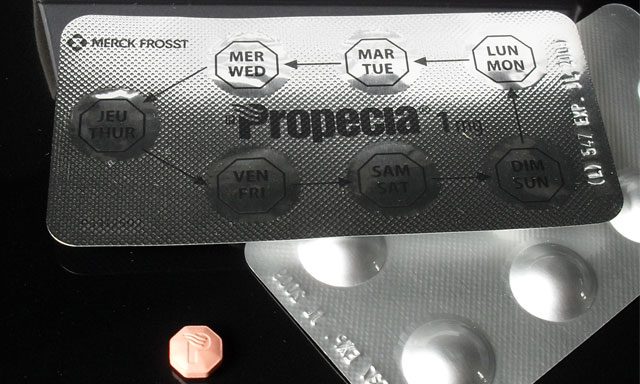
Propecia/Proscar (AKA Finasteride) has been linked to sexual dysfunction, prostate cancer, as well as male breast cancer.
Many people take Propecia to treat hair loss. While losing one’s hair can have an effect on self-esteem, the side effects of this medication have the potential to be much more serious. It’s important to weigh both the advantages and disadvantages before taking any drug, and we always recommend that you strongly consider the advice of your physician.
Finasteride is a man-made 5a-reductase inhibitor which works to prevent the enzyme 5a-reductase from converting testosterone to dihydrotestosterone (DHT). This medication, sold under the brand names Proscar and Propecia, is FDA approved for treating male pattern baldness and benign prostatic hyperplasia.
Some of the side effects related to the use of finasteride include the following:
- Impotence
- Abnormal sexual function
- Depression
- Development of male breasts (gynecomastia)
While the FDA added a warning that there is a possible link between the risk of high-grade prostate cancer and the use of Finasteride, a definitive link has not yet been established. A 2010 study also showed a possible link between Finasteride and the risk for male breast cancer.
Study Results on the Negative Effects of Propecia
Propecia is a medication that is prescribed for male pattern hair loss, as well as for treating an enlarged prostate. The problem is that the use of this medication is linked to sexual dysfunction that may remain after cessation of treatment, according to researchers from George Washington University.
George Washington University and Dr. Michael Irwig of the Center for Andrology and Division of Endoctrinology monitored 54 adult males whose average age was 31 years old. The subjects had been experiencing sexual side effects for three or more months because of the medication.
All the men who participated in the study were healthy when the study began and had no previous sexual problems, no emotional or medical conditions, and had not previously used any prescription drugs for male pattern hair loss. All the participants were followed for a period of 14 months with the following results:
- 96 percent of the men who were reassessed continued to experience persistent sexual side effects while some also experienced changes in genital sensation, quality of ejaculate, and cognition.
- 89 percent of the 54 men met the Arizona Sexual Experiences Scale for sexual dysfunction which rates arousal, libido, erection, orgasm satisfaction, and ability to achieve orgasm.
Dr. Irwig also stated the majority of men who develop persistent sexual side effects that continue even when the medication is discontinued will continue to suffer from the problem for months or even years after.
Propecia and Prostate Cancer
The FDA issued a warning on June 9, 2011 stating that Propecia could possibly increase the risk of high-grade prostate cancer. Since that time, they have required the labels of Propecia to include information about this increased risk. Some of the more-common signs and symptoms of prostate cancer include the following:
- Urinary problems
- Erectile problems
- Frequent pain in the upper thighs, lower back, and hips
It’s essential for anyone considering the use of Propecia for male pattern hair loss to conduct research and make an informed decision.
In the event you choose to use the product and suffer the serious side effects listed here, you may have a valid personal injury claim. Should you wish to learn more about your legal options (including filing a drug injury lawsuit), contact a lawyer experienced in product liability law for a free consultation.







